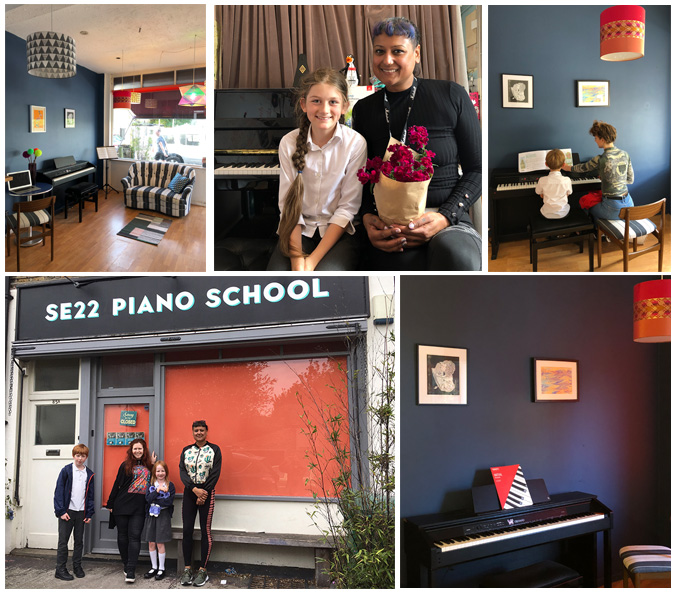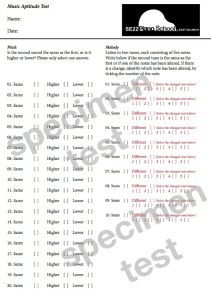
We have a really simple payment system at the piano school. Here is the process that leads people to find us and engage our services:
- A student finds us online or by word of mouth.
- They enquire about our services and book an initial consultation lesson. This determines readiness to start lessons and whether the teacher is a good match.
- They register for lessons and agree to the terms and conditions (including the payment system).
- They are issued an invoice to be paid within 12 hours to secure their space on our student roster.
- The invoice covers a block of half-termly lessons, usually 5 to 7 lessons paid in advance by online banking.
- Once they are registered they continue to receive these invoices on the last Monday of each half-term to be paid no later than 5pm.
- Once the invoice is paid they are locked in for the next half-term of lessons and our bookkeeper can finalise the books and we can all clock off for the school holidays and never think about money matters again.
Actually that last point is totally not true because the sheer amount of time we waste chasing late payments is really quite unsustainable for such a small business. We are a small studio of 2 rooms in the heart of East Dulwich. We are all freelance music teachers earning our living from offering music lessons during term-time only for which we are paid weekly according to the number of students on our roster. Ideally we like to teach without any gaps in our schedule in order to justify the travel distance to and from East Dulwich. Most of our team live nowhere near the piano school and as you know, travelling by public transport is always fraught with problems (tube strikes, road works, LTNs) and this means the journey to the piano school is a considerable time commitment and expense. For this reason all teachers like to have as busy a shift as possible.
So back to the late payers. We have around 100 students on our books and come the 5pm deadline, around 15 to 20 will not have made any payment nor made any contact with us to ask for an extension to the payment or let us know when payment will be sent. I outsource the majority of the bookkeeping to a fantastic lady called Pippa who used to live in East Dulwich but now lives in New Zealand. As a musician she understand the business inside out and works approximately 1 day per month on bookkeeping to issue the invoices and then reconcile all the payments. Whilst I understand the basics of the accounts system that we use (Xero) I am not really a dabhand with it which is why I prefer to outsource this to her. However chasing late payments comes down solely to me as it would be far too expensive to ask Pippa to do this given the high number of students that pay us late every single half-term. Some act surprised that they owe us money; some say they didn’t receive the invoice even though on Xero we can see that is has been opened; others occasionally just vanish without making payment at all.
I like to try and wrap up all the bookkeeping as soon as possible so that:
- I can let my team of teachers know exactly how many hours they are working the following term.
- I can identify any gaps in the schedule and advertise those to the waiting list or siblings that are ready to start lessons.
- I can clock off from the endless admin and actually get to spend some time with my daughter who I rarely see as I work exclusively after-school so am not home until late in the evening.
- I’d love to not be chained to my laptop checking the online banking statement to see if any late payments have arrived. You’ll be surprised how many people pay late and don’t bother to even tell me the payment has been sent, thus leading to me having to check the bank account several times throughout the day despite asking them to inform us when payment has been made.
Which leads us nicely back to the question: What WOULD I do with all the spare hours in the daytime if I didn’t have to email everybody asking them to pay their invoices in return for the service they have requested from me?
Well I’d probably get some boring household chores done – there’s always hoovering and tidying up to be done. I’d also practice the piano because that never gets given enough time! I’d probably go for a swim during the day at Beckenham Lake or maybe the Royal Docks when the weather is good because I love outdoor swimming. And I’d indulge in my passion which is fermentation (kimchi, kombucha etc).
On average I spend about 8 hours spread across three days checking late payments. As of today, it’s the start of a new term and one student has not paid nor let us know if they are continuing lessons. This now means I have to send a final payment reminder with a 24 hour deadline to pay and then let them know we are unable to continue to offer lessons as they have not responded. These two emails represent a significant cost to the business, not to mention the loss of income to the teacher as well. Let’s say every work email I send is worth £5 in admin time. That’s £10 to chase that late payment. When you calculate that we have up to 20 students paying late, that’s a cost to the business of £200 in admin time chasing fees every half-term. Over the year that represents around £1200 in wasted admin time. I actually find extended periods of time staring at a screen difficult as I suffer with vertigo and screen use exacerbates this and often leads to a migraine. This is one of the reasons that I love teaching so much as it doesn’t involve excessive computer use.
Whilst we are never out of pocket as we bill in advance, it is nonetheless a frustrating amount of time to waste chasing students that have requested our services. I am sure you can understand the job of a freelance musician is hardly a lucrative one and living in one of the most expensive cities in the world, every penny counts!
We thank you for taking the time to read this and if you are one of the majority of students that pay your invoice on time, we thank you from the bottom of our hearts!
If you are one of the occasional or repeat late payers, please do consider the impact of your actions on the piano school and how it affects the smooth operation. If you have any questions about payments, please reach out to your teacher who will be able to assist you.




